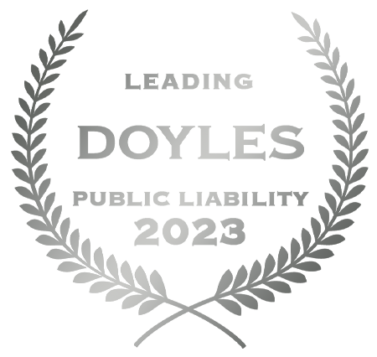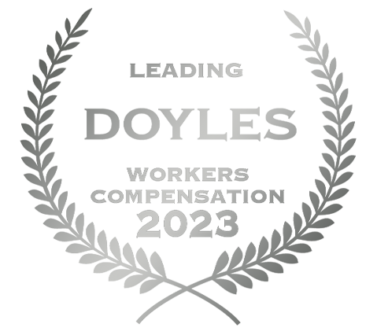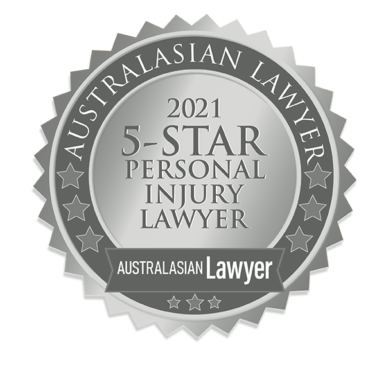
Forceps Delivery Negligence – Your Guide.
If you or your baby have been injured following a forceps delivery you might have lots of questions about how this could happen and what to do next. For example, injuries can be caused by the pressure of the forceps on your baby’s head causing everything from bruising to brain damage. Forceps can also cause serious tearing to the mother resulting in stitches or even urinary and anal incontinence, as well as psychological trauma.
You might be worried that mistakes have been made. Perhaps you suspect that an alternative delivery method such as a caesarian or vacuum-assisted delivery would have been safer and more appropriate, that you weren’t presented with the options, or asked for your consent. Or perhaps you believe that the obstetrician used undue force or poor technique with the forceps.
This article will help you answer these questions and understand whether the injuries are likely to be the result of negligence and what you should do next.

Forceps delivery injuries – what you need to know.
In our experience, we find that parents come to us with one of the following situations:
If your injury will take a significant amount of time to heal or is permanent this may require ongoing treatment costs, travel expenses, and time off work as well as impacting your ability to care for your baby.
If your baby’s injury will take a significant amount of time to heal or is permanent this may require ongoing treatment costs, travel expenses, and time off work for you to care for your baby and take them to appointments.
You might have been assured that the injuries to you or your baby were unavoidable, and in many cases, this may be true. But if you have doubts, read on to learn about your options.
It’s possible another delivery method would have been more appropriate or that the way the forceps delivery was carried out was negligent. In this article, we’ll help you understand where the inherent risk ends and possible negligence begins, and how to work out which applies to you. Negligence can occur before, during, or after your forceps delivery.
You might need more time off work to recover than was expected, or your partner or another person may need to take time off to care for you and your baby. You or your baby might also be facing costly treatments, or you may have life-changing injuries that affect your ability to work permanently. Read on to learn about your entitlements to compensation, which can be significant.
Which forceps delivery birth injuries can be caused by negligence?
Forceps delivery, like other delivery interventions, carries risk. Usually this type of delivery goes smoothly and mother and baby recover in the expected time, however, injuries can occur and sometimes these are caused by negligence. In some cases, a forceps delivery may have been avoidable, and another delivery method may have been safer and more appropriate.
Here are some of the injuries that can be caused by negligence:
Injuries to you.
Forceps delivery is a highly skilled procedure. If mistakes are made during your delivery or your post-delivery care is inadequate then there could be dangerous consequences for you.
Forceps delivery can result in serious 3rd or 4th-degree tears to the perineum (the area between the vagina and anus). Medical staff may have been negligent if they used excessive force or didn’t position the forceps correctly leading to more tearing than would be reasonably expected.
Your obstetrician may perform an episiotomy (a cut made to the perineal to widen the vaginal opening) to aid in a forceps delivery. If the episiotomy is done incorrectly or the cut extends further than is necessary this could cause you more pain, bleeding and delay your healing, and could constitute medical negligence.
Forceps delivery can cause damage to the muscles and nerves in your pelvic floor leading to urinary incontinence. It can also increase the risk of damage to the anal sphincter muscles which control bowel movements. Your obstetrician may be negligent if they failed to assess and warn you of the risks of a forceps delivery in these circumstances, if they use excessive force, or if the delivery technique is inappropriate and results in urinary or anal incontinence.
Blood loss and blood clots can occur after a forceps delivery. This usually heals without further intervention, but in some cases can lead to long-term conditions. If the forceps delivery wasn’t performed correctly or another delivery method would have been more appropriate you could be eligible for compensation.
A forceps delivery can cause pelvic organ prolapse. This means that organs such as the uterus, bladder and rectum descend into the vaginal canal, and can cause discomfort and the need for frequent urination. Medical staff may be negligent if they didn’t properly assess or warn you of the risks associated with a forceps delivery, or if forceps delivery was performed unnecessarily or improperly.
Forceps delivery can cause pain and discomfort to the mother, especially if there’s trauma to the pelvic muscles or nerves. If medical staff don’t manage your pain adequately during or after the forceps delivery, or if another delivery method would have been more appropriate for you then this could constitute medical negligence.
Injuries to your child.
If mistakes are made during your forceps delivery there can also be a significant risk to your baby. The injuries can range from temporary issues that are easily treated after birth, to lifelong issues that affect your child and family forever.
Cerebral palsy is a lifelong condition that affects movement and posture. Forceps delivery can increase the risk of your baby developing this. Your obstetrician could be negligent if a forceps delivery was unnecessary or if excessive force was applied leading to brain injury and cerebral palsy.
Improper placement or excessive force when applying the forceps can lead to bruising, lacerations and swelling on your baby’s face or scalp, or damage to the cornea of their eye. Often this heals but sometimes scarring can be permanent. Your obstetrician may be found negligent if they didn’t properly assess your baby’s position or if they applied the forceps incorrectly or used too much force.
In rare cases, a forceps delivery can result in skull fractures if excessive force is used during the extraction process. Medical staff may be found to be negligent if they failed to use the proper technique or if a forceps delivery was attempted when your baby was in the wrong position for safe extraction.
Forceps delivery can sometimes cause bleeding inside your baby’s skull. This is called an inter-cranial haemorrhage. This can happen if excessive force is applied to the forceps, or if they slip during delivery. Medical staff may be found negligent if they didn’t recognise the risks of a forceps delivery or if they didn’t perform the task with proper skill and care.
Shoulder dystocia happens when the baby’s shoulder is caught behind the mother’s pubic bone. When a medical professional pulls on the baby to release it, it can cause damage to the nerves in the shoulders. This could lead to a brachial plexus injury or Erb’s palsy, which affects the nerves controlling the baby’s arms and hands. If the forceps were used incorrectly leading to excessive traction or stretching of your baby’s shoulders and arms during forceps delivery this could constitute negligence.
Forceps delivery can injure your baby’s facial nerves, leading to temporary or permanent facial paralysis. If your obstetrician used the forceps improperly leading to compression or stretching of the facial nerves they could be found negligent.
If your baby suffers from seizures following your forceps delivery this is a serious complication that can be a sign of underlying brain injuries. Medical staff could be found to be negligent if due care wasn’t taken with your delivery. For example, if undue force was used, the forceps weren’t positioned correctly, or your delivery was delayed.
A hematoma is a localised collection of blood outside of a blood vessel. With a forceps delivery pressure or trauma to the head caused by pressure from the forceps could cause a hematoma under the scalp. Medical staff could be found to be negligent if undue pressure or poor technique was used with the forceps, or if they didn’t provide adequate and timely treatment for the hematoma after your baby had been delivered.
Hydrocephalus is an abnormal collection of cerebrospinal fluid (CSF) in the brain that causes a build-up of pressure in the skull. This can sometimes be caused by the trauma associated with forceps delivery. Medical staff could be found to be negligent if undue pressure or poor technique was used with the forceps, or if they didn’t provide adequate and timely treatment for the hydrocephalus after your baby had been delivered.
Call 13 15 15 or chat to us now for free advice
Chat nowFind out how much you can claim.
Get startedWas my forceps injury caused by negligence?
Not all mistakes occur because someone was negligent but how can you recognise the difference?
A medical negligence claim is a claim against a medical professional for compensation for losses that have occurred as a result of their negligence. Medical negligence (also known as medical malpractice) is when a medical professional’s behaviour doesn’t meet the appropriate standard of care, and the patient suffers injury or loss. Medical professionals owe you a duty of care, and if you’re injured when this duty is breached, you may be entitled to claim medical negligence compensation.
Here are some questions you can ask that may help you work out if your, or your baby’s injuries are due to medical negligence:
- Did you or your baby suffer injury or loss as a result of your medical treatment?
- Was the treatment below the standard of care and skill that a reasonable professional would have provided in the same circumstances?
- Would your injury or loss have been avoided if your care had been appropriate?
What’s an example of a forceps injury caused by medical negligence?
One way to understand what is considered negligence is to look at an example.
First-time mum, Leanne was awarded $900,000 following a negligent forceps delivery injury. When her delivery became urgent her obstetrician opted to proceed with a vaginal birth using forceps, rather than an emergency Caesarean or a vacuum-assisted delivery. The baby was delivered safely; however, the use of forceps caused a grade 3b perineal tear. This was repaired with stitches in the delivery suite.
Unfortunately, Leanne was badly injured and suffered faecal and urinary incontinence as well as severe depression.
Our medical negligence team took on Leanne’s claim, and the hospital was found to be negligent in a number of ways:
- Leanne was not informed of the different options for delivery and the associated risks ahead of the forceps delivery.
- The obstetrician used excessive and inappropriate force with the forceps.
- The stitches to Leanne’s grade 3b perineal tear were done in the delivery suite but she should have been moved to an operating theatre for such a serious tear.
- The stitches were applied incorrectly which led to the wound not healing as well as it should have or within the expected time.
You can read Leanne’s full story here.
What do I do next if I suspect negligence?
If your injury was caused by negligence, you may be entitled to compensation to cover things such as current and future loss of income, medical treatment, and travel expenses. You may also be entitled to a total and permanent disability (TPD) lump sum if you can’t return to work.
If your child was injured through negligence they may be entitled to compensation for treatment and care now and in the future.
You can get free legal advice on your options by speaking to one of our specialist birth injury negligence lawyers on 13 15 15. We’ll advise you whether you can claim compensation and explain the process to you. Your call is 100% confidential and you’re under no obligation to proceed with a claim if you choose not to.
If you decide to proceed with a claim, we’ll match you with a specialist medical negligence lawyer who has experience with claims similar to yours. Your lawyer will take time to listen to your side of the story and get to know you personally, to understand the full impact the injuries have had on your life. We work on a no win, no fee basis, and we win over 99% of our cases. We have specialist lawyers ready to help across Melbourne and Sydney, including Parramatta and Newcastle.

Shane Butcher
Principal
An accredited specialist in personal injury law and spokesman for the Australian Lawyers Alliance, with the best part of 20 years’ experience in assisting injured Australians receive everything they’re entitled to.










